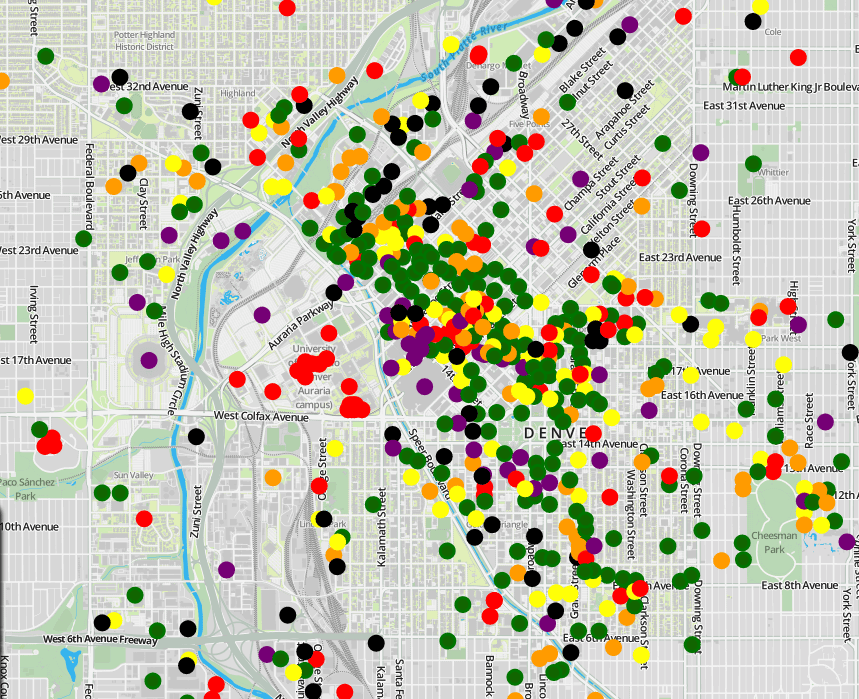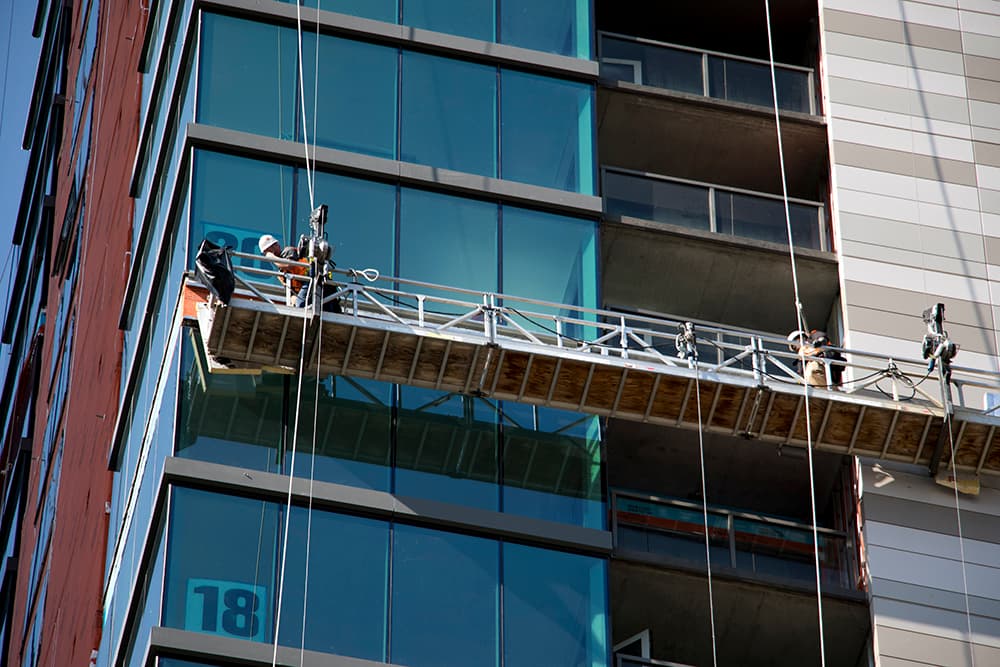
The city of Denver is using peer pressure to fight climate change: A new map published by the city rates the energy efficiency of the largest buildings in Denver. So far, it appears that buildings here are more energy efficient than the national average.
The data is meant to show who's wasting power and who's using it best. That's important because heating and cooling systems in buildings make up about 57 percent of Denver's greenhouse gas emissions.
The early data shows:
- Denver's offices are the most efficient building type, averaging 77 out of 100 on the Energy Star scale.
- Hotels tended to be the least efficient, averaging 65 out of 100.
- All categories significantly outranked the national average of 50 out of 100 for comparably sized buildings, according to Denver staff.
The scores are adjusted for occupancy and other factors. City staff will publish more analysis in the weeks ahead.
"Everybody knows the miles per gallon rating on their car — but do they know if they work in an energy efficient building? Do they know if they work in an apartment building that is particularly well managed for energy?" said Katrina Managan, a senior adviser for energy efficency at the city.
So far, about 90 percent of building owners have submitted the required information. This is the first year that the program is in effect. Right now, data is required from buildings larger than 50,000 square feet; next year, the requirement kicks in at 25,000 square feet.
About 90 percent of buildings are in compliance right now, but a total of about 150 are not. Those that haven't submitted required data have been cited and will be fined $2,000 per year, although they can get the fines dropped if they come into compliance.
Other cities that have done similar “benchmarking” programs have seen their commercial-sector energy use go down, as Erica reported last year.
A study in San Francisco found that energy use went down 7.9 percent between 2010 and 2015 when benchmarking and reporting requirements were implemented. Energy use in New York City went down 5.9 percent between 2010 and 2014.
Right now, there's no punishment for having a low-efficiency building, but city leaders have said that Denver might have to take action if the private sector doesn't improve energy use on its own.













